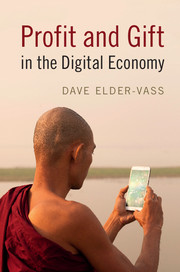10 - Conclusion
from Part III - Digital economies
Published online by Cambridge University Press: 05 July 2016
Summary
Introduction
To make it possible to think beyond the economic systems we have today – and even just to understand the economy we already have – we need a new kind of political economy. We need a political economy that recognises that commodity production is not the only form of economic activity and is therefore able to address the full diversity of existing and possible economic forms, rather than trying to force them all into a dogmatic mould. We need a political economy that recognises the fundamentally social – and indeed material – nature of economic activity and examines the practices through which it operates, not as a sideshow to a more formal, more fundamental, economics but rather as the theoretical foundation for a more realistic study of the economy. We need a political economy that evaluates economic actions and practices against explicit ethical standards that reflect the actual needs of people, not against ideological principles that purport to reflect long-term common benefit. We need a political economy that helps us to see viable routes towards a better economy rather than denying the need for one, as mainstream economics does, or placing a better economy impossibly out of reach, as traditional Marxism does.
This book proposes some elements of such a political economy: a political economy of socio-material structures and practices – which I abbreviate to a political economy of practices. In this approach, the economy is defined as a provisioning economy, which includes all those activities that create or deliver benefits to people whether or not they operate through commodity exchange. These activities take a variety of forms, each of which can be analysed – and this is the central theoretical innovation of the book – as an interacting set or complex of appropriative practices, where an appropriative practice is a normatively standardised way of acting that affects who receives what benefits from provisioning activity. Capitalism is not one such form but a range of different complexes of appropriative practices that share one central feature: activity in capitalist forms is ultimately driven by the need to accumulate ever-increasing amounts of capital. Our economy, however, is not only the site of capitalism but also of a wide range of other complexes of appropriative practices, including gift economy and hybrid forms.
- Type
- Chapter
- Information
- Profit and Gift in the Digital Economy , pp. 216 - 232Publisher: Cambridge University PressPrint publication year: 2016



